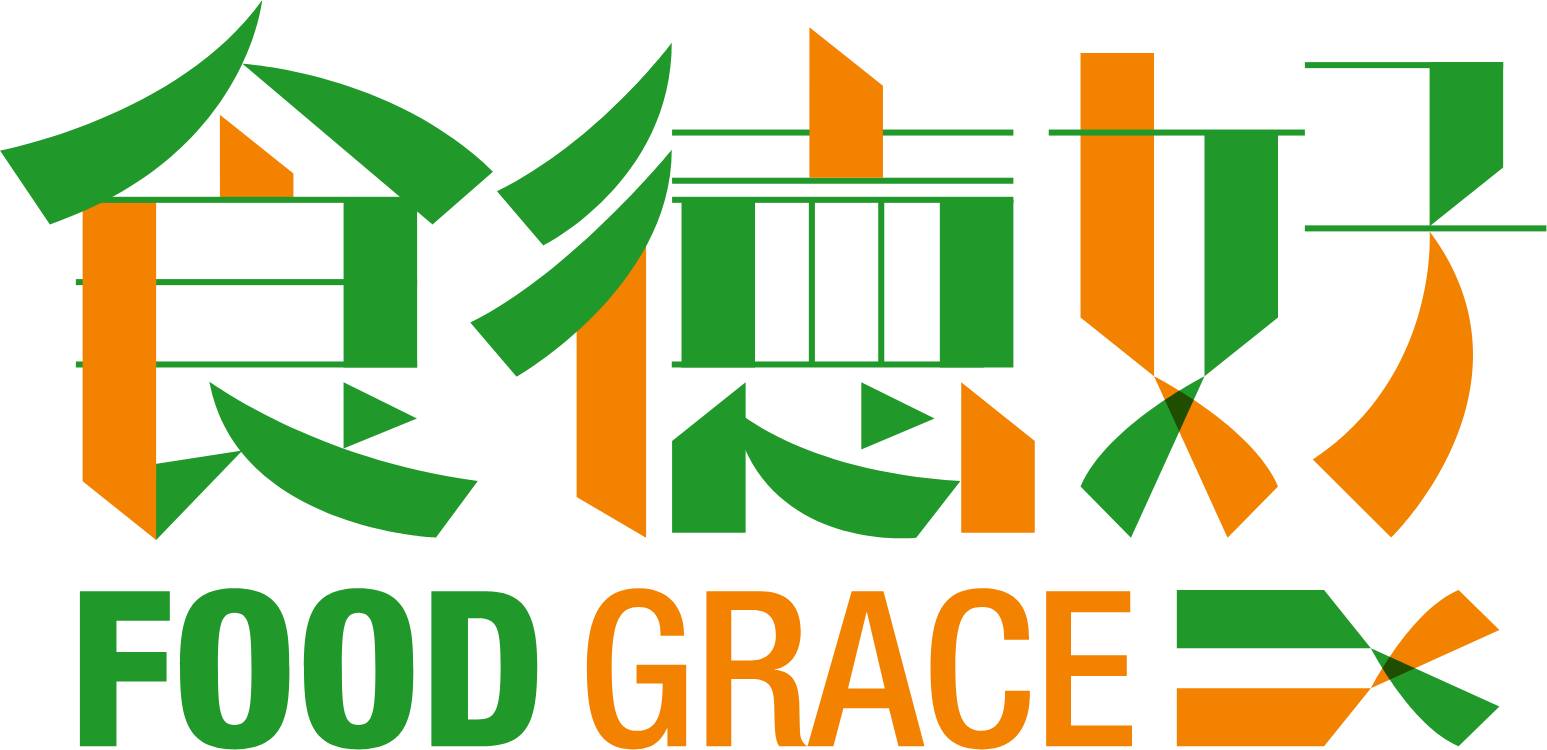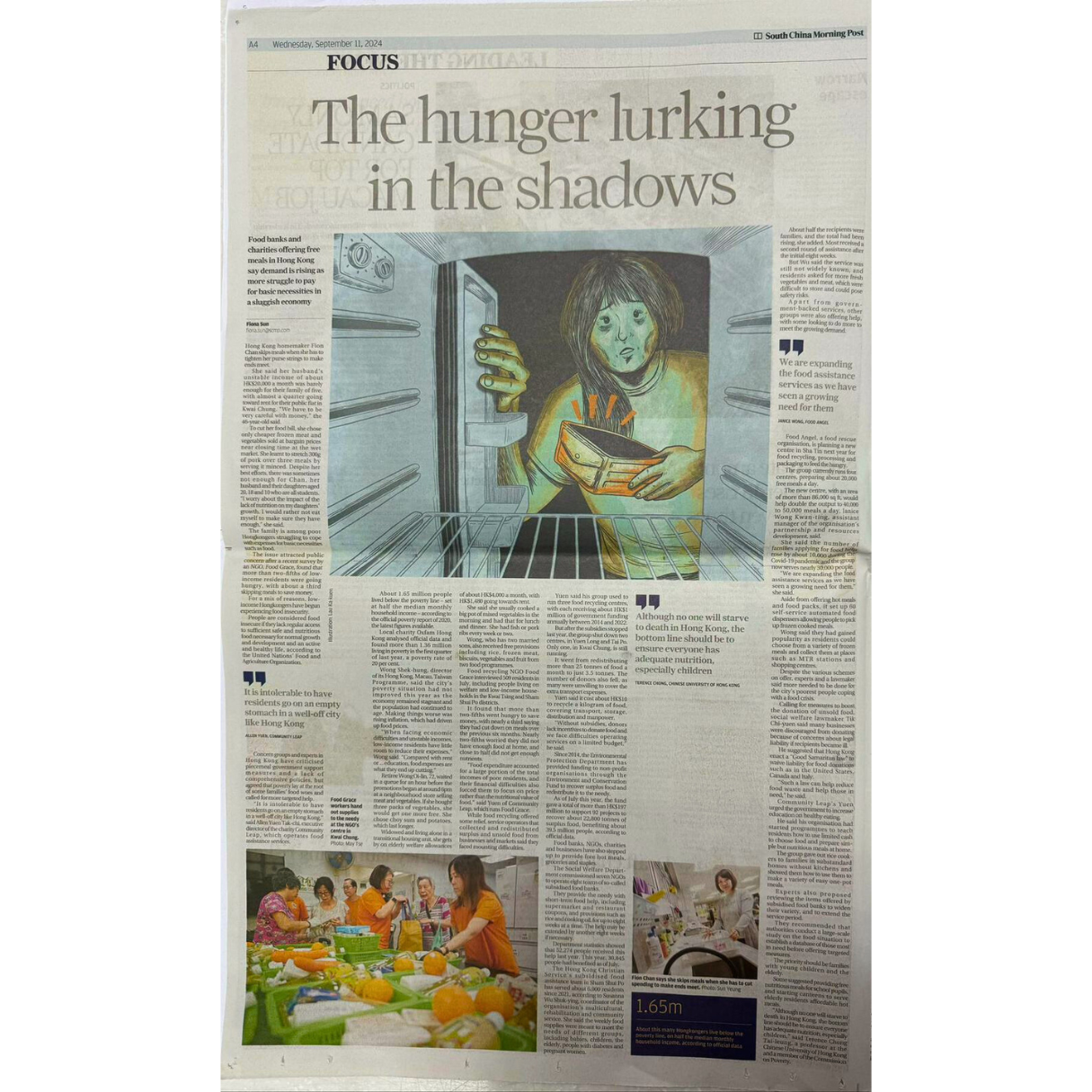Impoverished Hongkongers are skipping meals to save cash. How can authorities help them?
Food banks and charities offering provisions, cooked meals say demand has risen as more struggle to cope
Fiona Sun
Published: 11:00am, 11 Sep 2024 / Updated: 11:00am, 11 Sep 2024
Hong Kong homemaker Fion Chan skips meals when she has to tighten her purse strings to make ends meet.
She said her husband’s unstable income of about HK$20,000 (US$2,570) a month was barely enough for their family of five, with almost a quarter going toward rent for their public flat in Kwai Chung.
“We have to be very careful with money,” the 46-year-old said.
To cut her food bill, she chose only cheaper frozen meat and vegetables sold at bargain prices near closing time at the wet market. She learnt to stretch 300g of pork over three meals by serving it minced.
Despite her best efforts, there was sometimes not enough for Chan, her husband and their daughters aged 20, 18 and 10 who are all students.
“I worry about the impact of the lack of nutrition on my daughters’ growth. I would rather not eat myself to make sure they have enough,” she said.
The family is among poor Hongkongers struggling to cope with expenses for basic necessities such as food.
The issue attracted public concern after a recent survey by an NGO, Food Grace, found that more than two-fifths of low-income residents were going hungry, with about a third skipping meals to save money.
For a mix of reasons, low-income Hongkongers have begun experiencing food insecurity.
People are considered food insecure if they lack regular access to sufficient safe and nutritious food necessary for normal growth and development and an active and healthy life, according to the United Nations’ Food and Agriculture Organization.
Concern groups and experts in Hong Kong criticised piecemeal government support measures and a lack of comprehensive policies, but agreed that poverty lay at the root of some families’ food woes and called for more targeted help.
“It is intolerable to have residents go on an empty stomach in a well-off city like Hong Kong,” said Allen Yuen Takchi, executive director of the charity Community Leap, which operates food assistance services.
‘Price matters more than nutrition’
About 1.65 million people lived below the poverty line – set at half the median monthly household income – according to the official poverty report of 2020, the latest figures available.
Local charity Oxfam Hong Kong analysed official data and found more than 1.36 million living in poverty in the first quarter of last year, a poverty rate of 20 per cent.
Wong Shek-hung, director of its Hong Kong, Macau, Taiwan Programme, said the city’s poverty situation had not improved this year as the economy remained stagnant and the population had continued to age.
Making things worse was rising inflation, which had driven up food prices.
“When facing economic difficulties and unstable incomes, low-income residents have little room to reduce their expenses,” Wong said. “Compared with rent or their children’s education, food expenses are what they end up cutting.”
Retiree Wong Oi-lin, 72, waited in line for an hour before the promotions began at around 6pm at a neighbourhood store selling meat and vegetables.
If she bought three packages of vegetables, she would get one more free. She chose choy sum and potatoes, which lasted longer.
Widowed and living alone in a transitional housing unit, she gets by on elderly welfare allowances of about HK$4,000 a month, with HK$1,480 going toward rent.
She said she usually cooked a big pot of mixed vegetables in the morning and had that for lunch and dinner. She had fish or pork ribs every week or two.
Wong, who has two married sons, also received free provisions including rice, frozen meat, biscuits, vegetables and fruit from two food programmes.
Food recycling NGO Food Grace interviewed 509 residents in July, including people living on welfare and low-income households in the Kwai Tsing and Sham Shui Po districts.
It found that more than two-fifths went hungry to save money, with nearly a third saying they had cut down on meals over the previous six months.
Nearly two-fifths worried they did not have enough food at home, and close to half did not get enough nutrients.
“Food expenditure accounted for a large portion of the total incomes of poor residents, and their financial difficulties also forced them to focus on price rather than the nutritional value of food,” said Yuen of Community Leap, which runs Food Grace.
‘Donors lack incentives to help’
While food recycling offered some relief, service operators that collected and redistributed surplus and unsold food from businesses and markets said they faced mounting difficulties.
Yuen said his group used to run three food recycling centres, with each receiving about HK$1 million of government funding annually between 2014 and 2022.
But after the subsidies stopped last year, the group struggled to continue its recycling services and shut down two centres, in Yuen Long and Tai Po. Only one, in Kwai Chung, is still running.
It went from redistributing more than 25 tonnes of food a month to just 3.5 tonnes. The number of donors also fell, as many were unwilling to cover the extra transport expenses.
Yuen said it cost about HK$10 to recycle a kilogram of food, covering transport, storage, distribution and manpower.
“Without subsidies, donors lack incentives to donate food and we face difficulties operating services on a limited budget,” he said.
Since 2014, the Environmental Protection Department has provided funding to non-profit organisations through the Environment and Conservation Fund to recover surplus food and redistribute it to the needy.
As of July this year, the fund gave a total of more than HK$197 million to support 92 projects to recover about 22,800 tonnes of surplus food, benefiting about 39.5 million people, according to official data.
‘People don’t know help is available’
Food banks, NGOs, charities and businesses have also stepped up to provide free hot meals, groceries and staples.
The Social Welfare Department commissioned seven NGOs to operate eight teams of so-called subsidised food banks.
They provide the needy with short-term food help, including supermarket and restaurant coupons, and provisions such as rice and cooking oil, for up to eight weeks at a time. The help may be extended by another eight weeks if necessary. Department statistics showed that 52,274 people received this help last year. This year, 30,845 people had benefited as of July.
The Hong Kong Christian Service’s subsidised food assistance team in Sham Shui Po has served about 6,000 residents since 2021, according to Susanna Wu Shuk-ying, coordinator of the organisation’s multicultural, rehabilitation and community service.
She said the weekly food supplies were meant to meet the needs of different groups, including babies, children, the elderly, people with diabetes and pregnant women. About half the recipients were families, and the total had been rising, she added. Most received a second round of assistance after the initial eight weeks.
But Wu said the service was still not widely known, and residents asked for more fresh vegetables and meat, which were difficult to store and could pose safety risks. Apart from government-backed services, other groups were also offering help, with some looking to do more to meet the growing demand.
Food Angel, a food rescue organisation, is planning a new centre in Sha Tin next year for food recycling, processing and packaging to feed the hungry.
The group currently runs four centres, preparing about 20,000 free meals a day. The new centre, with an area of more than 86,000 sq ft, would help double the output to 40,000 to 50,000 meals a day, Janice Wong Kwan-ting, assistant manager of the organisation’s partnership and resources development, said.
She said the number of families applying for food help rose by about 10,000 during the Covid-19 pandemic and the group now serves nearly 30,000 people.
“We are expanding the food assistance services as we have seen a growing need for them,” she said. Aside from offering hot meals and food packs, it set up 60 self-service automated food dispensers allowing people to pick up frozen cooked meals. Wong said they had gained popularity as residents could choose from a variety of frozen meals and collect them at places such as MTR stations and shopping centres.
Will a ‘Good Samaritan law’ help?
Despite the various schemes on offer, experts and a lawmaker said more needed to be done for the city’s poorest people coping with a food crisis.
Calling for measures to boost the donation of unsold food, social welfare lawmaker Tik Chi-yuen said many businesses were discouraged from donating because of concerns about legal liability if recipients fell sick.
He suggested that Hong Kong enact a “Good Samaritan law” to waive liability for food donations such as in the United States, Canada and Italy.
“Such a law can help reduce food waste and help those in need,” he said.
Community Leap’s Yuen urged the government to increase education on healthy eating.
He said his organisation had started programmes to teach residents how to use limited cash to choose food and prepare simple but nutritious meals at home.
The group gave out rice cookers to families in substandard homes without kitchens and showed them how to use them to make a variety of easy one-pot meals.
Experts also proposed reviewing the items offered by subsidised food banks to widen their variety, and to extend the service period.
They recommended that authorities conduct a large-scale study on the food situation to establish a database of those most in need before offering targeted measures.
The priority should be families with young children and the elderly.
Some suggested providing free nutritious meals for school pupils, and starting canteens to serve elderly residents affordable hot meals.
“Although no one will starve to death in Hong Kong, the bottom line should be to ensure everyone has adequate nutrition, especially children,” said Terence Chong Tai-leung, a professor at the Chinese University of Hong Kong and a member of the Commission on Poverty











